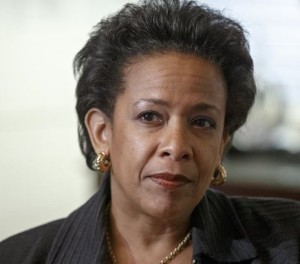ARLINGTON, VA. – Alexandra (Sandi) Pierce, Founder and President of Othayonih Research, has been named a 2015 Pathbreaker Award recipient by Shared Hope International for her outstanding leadership in exposing, addressing, and preventing domestic sex trafficking of American Indian, Alaska Native, and other girls of color. Her report, Shattered Hearts: The commercial sexual exploitation of American Indian women and girls in Minnesota was the first research published in the United States on the impact of this issue on Native communities.
As a nationally recognized doctor of applied sociology, Dr. Pierce contributes new research on emerging issues including the commercial sexual exploitation of Native women and girls (Shattered Hearts; New Language: Old Problem) and trafficking markets, specifically the structure and processes of trafficking operations that exploit minor girls (Mapping the Market). Dr. Pierce draws on her experience as a survivor of sex trafficking to elevate the integral voice of survivor leaders in the national discussion on sex trafficking. She is of Onondawaga (Seneca) descent, a position that allows her to raise awareness of the unique and complex plight of Native American sex trafficking victims while promoting leadership from members of tribal nations.
One of her most notable contributions to the field was her research, Shattered Hearts, commissioned by the Minnesota Indian Women’s Resource Center and W.K. Kellogg Foundation, that found a unique link between sex trafficking and generational trauma or historical trauma. This unique form of trauma is caused by significant historical events or generational hardships imposed on Native Indian women and girls and contributes to their increased risk of sexual exploitation and trafficking.
“Dr. Pierce has exposed the problem of sexual exploitation of Native women and girls that can lead to improved justice for the victims,” Shared Hope International President and Founder Linda Smith said. “Her continuing research on the issue of sex trafficking provides unique, experiential insight challenging us to respond.”
Dr. Pierce holds Master’s and doctoral degrees from the University of Minnesota’s Department of Sociology. She is a member of the State of Minnesota’s Human Trafficking Task Forces, and Shared Hope International’s JuST Response Council.
The 2015 Pathbreaker Award recipients also include John Cotton Richmond, Esq. (U.S. Department of Justice) and Sheriff Thomas Dart (Cook County Sheriff’s Office). The awards will be presented at Shared Hope International’s JuST Conference on November 12 in Washington, D.C.
History of the Award: In 2000, the U.S. Department of State engaged Shared Hope International to hold Pathbreaking Strategies Conferences in six countries to energize the global conversation and share innovative approaches to combat trafficking. During this process, the Pathbreaker Award was established to recognize the pioneering efforts of individuals throughout the world who broke the trend of inaction and initiated proactive responses to prevent trafficking. See all Pathbreaker Award recipients.
Media Materials: For media convenience, a variety of video clips and resources, including survivor comments, are available at this location: http://vimeo.com/user12564384/albums. Clips are password protected, please contact Taryn Offenbacher at Taryn@sharedhope.org for access.
Shared Hope International was established in 1998, by former U.S. Congresswoman Linda Smith, to prevent, restore, and bring justice to women and children in crisis. We provide leadership in awareness, training, prevention strategies, restorative care, research, and policy initiatives. sharedhope.org
For more information contact Taryn Offenbacher at (602) 818-3955 or taryn@sharedhope.org.
 The National Institute of Justice hosted a conference on justice-involved youth and the new science in brain development led by Attorney General Loretta Lynch and Assistant Attorney General Karol Mason, in addition to a panel of experts. Attorney General Lynch introduced a wide array of restorative programs and ideas to reduce recidivism among late teens and young adults based on new brain developments. Assistant Attorney General Mason moderated the panel. The conference was primarily concerned with youth and young adults ages 18 to 24 who are in the criminal justice system.
The National Institute of Justice hosted a conference on justice-involved youth and the new science in brain development led by Attorney General Loretta Lynch and Assistant Attorney General Karol Mason, in addition to a panel of experts. Attorney General Lynch introduced a wide array of restorative programs and ideas to reduce recidivism among late teens and young adults based on new brain developments. Assistant Attorney General Mason moderated the panel. The conference was primarily concerned with youth and young adults ages 18 to 24 who are in the criminal justice system.





